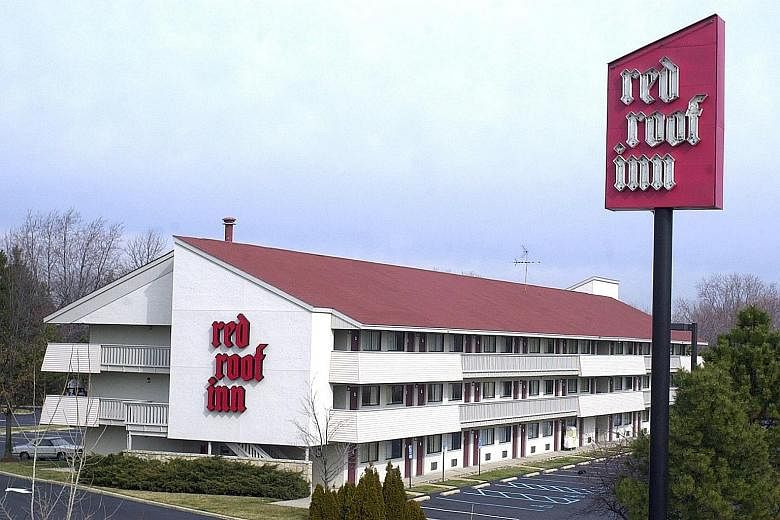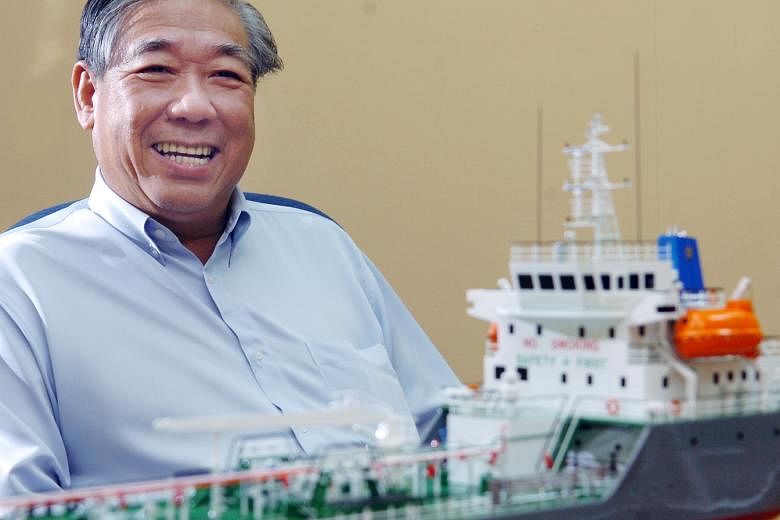Marine tycoon Tan Boy Tee has emerged as an investor in the economy hotel market in the US.
His privately held Bestford Capital bought a majority stake in the 89-hotel Red Roof Inn portfolio earlier this year, The Straits Times has learnt.
It teamed up with Westmont Hospitality to submit a winning bid of about US$600 million (S$841 million). Westmont Hospitality is retaining a minority stake and continues to operate the 10,715-room portfolio, according to trade publication Commercial Mortgage Alert.
Singapore investors have spent a total of US$1.9 billion on 116 assets in the overseas hospitality market as of this month, according to Savills Research.
Singapore is also the fifth highest cross-border capital origin country for hotel assets this year so far, after the US, Qatar, China and the United Arab Emirates.

"Most of the buyers in the current market are private equity players or high net worth individuals focusing only on hotels," said Mr Raymond Clement, managing director of Savills Hotels, Asia-Pacific.
Investors are more asset-class oriented, with institutional investors allocating an amount to specific assets depending on investor requirements including term, return, liquidity and risk.
"Hotels would be considered as a more risky investment than retail, commercial or residential in most of the gateway cities in Asia-Pacific... as it implies more factors including environmental, tourism, transport, brands and hotel operators," said Mr Clement. That said, yields for hotels in the region are usually 100 to 200 basis points more than commercial buildings in cities such as Seoul, Tokyo, Beijing, Shanghai, Taipei, Hong Kong, Singapore, Sydney and Melbourne, he said.
Some of this year's purchases are by owner-operators who would naturally acquire hotels or serviced residences to expand their businesses, added Mr Robert McIntosh, executive director of CBRE Hotels, Asia-Pacific.
S'pore investors 'active in Australia'
There is also a shortage of opportunities within Singapore. "(Singapore) is just such a high-value location. You can buy more and diversify as well by going into other countries," said Mr McIntosh.
Just three hotels have changed hands here this year, including the 328-unit Hotel Grand Chancellor Singapore, which Hotel Grand Central group sold to a Bangladeshi conglomerate for $248 million or about $756,000 per key. The sale was completed in January.
"The poorer market is encouraging owners not to sell as they are prepared, and in most cases can afford, to wait until there is an upturn," said Mr McIntosh.
In the US, Singaporean investors accounted for 8.9 per cent of all hotel transactions this year so far, largely due to the purchase of the Red Roof Inn portfolio. Excluding this single large portfolio transaction, Australia was the country with the most Singaporean investment.
Singapore investors accounted for 30.1 per cent of all hotel transactions in Australia this year, buying eight properties with a total value of A$671.7 million (S$675 million), according to Real Capital Analytics.
They have been active there over the past five years, noted Mr Clement of Savills.
Singapore investors were the top investors in Australian hotel property over the five years, spending a total of A$2.35 billion on 43 properties. China was second with 26 properties for A$1.67 billion and Hong Kong third.
Emerging destinations for Singapore investors include South-east Asian countries such as Malaysia, Thailand and Indonesia.
"Many Singaporean investors would like to invest in Japan but often cannot compete with the robust bidding of local Japanese investors," Mr Clement added. "Furthermore, construction costs have increased, making developments and refurbishments untenable for Singapore-listed companies."
Secondary cities in established European countries also present opportunities for investors who missed the chance to invest in primary cities, he said.
Singapore investors spent about US$181.3 million on five hotels in Britain and about US$91.4 million on two hotels in Japan this year, according to Savills Research.



